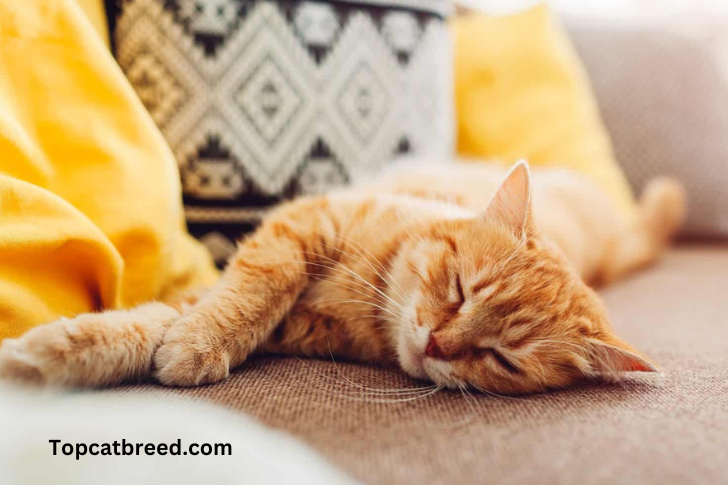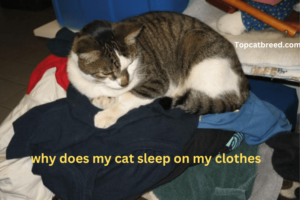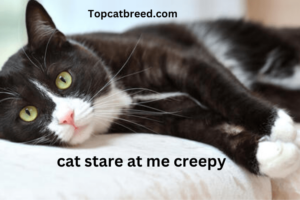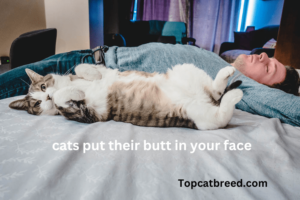Cat growling during sleep can be quite puzzling for cat owners. These mysterious, low-pitched sounds often make us wonder what’s going on in our feline friends’ dreams. In this exploration of cat behavior, we’ll take a closer look at why cats make these noises while they’re sleeping. When cats growl in their sleep, it’s usually because of various factors, although not all of them are completely understood. While cats are passive and unresponsive during these episodes, it’s believed that they might be reacting to the dreams they’re having.
Just like humans sometimes talk or move in their sleep, cats might growl because of dream scenarios, even though we can’t know for sure what those dreams are about. Cat growling in sleep can also be linked to physical processes like digestion or regulating body temperature. It might indicate that your cat is uncomfortable or uneasy, so it’s essential to check if there are any underlying health issues.
Why Is My Cat Growling in Its Sleep?
Understanding your cat’s behavior is essential, particularly when they display unusual actions like growling during their sleep. Let’s delve into the potential reasons behind this intriguing behavior and explore each subheading in greater detail.
Dreaming
Cats, just like humans, are believed to experience dreams. As they journey into the world of slumber, their minds venture into dreamscapes filled with enigmatic adventures. During these dream scenarios, your cat’s vocalizations, including growling, may be linked to the unfolding dream events. Although we can’t precisely fathom the content of their dreams, it’s a reasonable assumption that their vocalizations are closely tied to these nocturnal adventures.
Snoring
In some cases, what appears to be growling may, in fact, be snoring? Cats, much like their human counterparts, can produce soft snores during their deep sleep. These gentle snores can sometimes resemble growling, leading to momentary confusion. Recognizing the subtle distinctions between these sounds is crucial for accurately understanding your cat’s sleep behavior.
Pain
Growling during sleep can also serve as an indicator of discomfort or pain. While you’re feline companion is absorbed in their dream world, physical discomfort may intrude upon their slumber. The discomfort your cat experiences can vary from mild unease to more noticeable pain. It’s crucial to explore the root causes of this discomfort, whether tied to a medical condition or temporary unease. Taking appropriate steps to address these issues ensures your cat’s overall well-being and helps foster a happy and healthy feline companion.
Sleep Disturbance
External disturbances, ranging from ambient noise to the presence of other pets, can significantly disrupt your cat’s peaceful slumber. These external stimuli can startle your cat, prompting growling or other vocalizations. To minimize the influence of these disturbances, it’s essential to create a serene sleep environment for your cherished feline companion, allowing them to rest more undisturbed and ensuring they awaken refreshed.
By exploring these facets of your cat’s sleep behavior, you can better comprehend the reasons behind their growling and take steps to ensure their comfort and well-being. Keep in mind that while growling in sleep can be a natural behavior, it’s always advisable to monitor your cat’s overall health and behavior for any unusual or persistent changes.
What Is Growling?
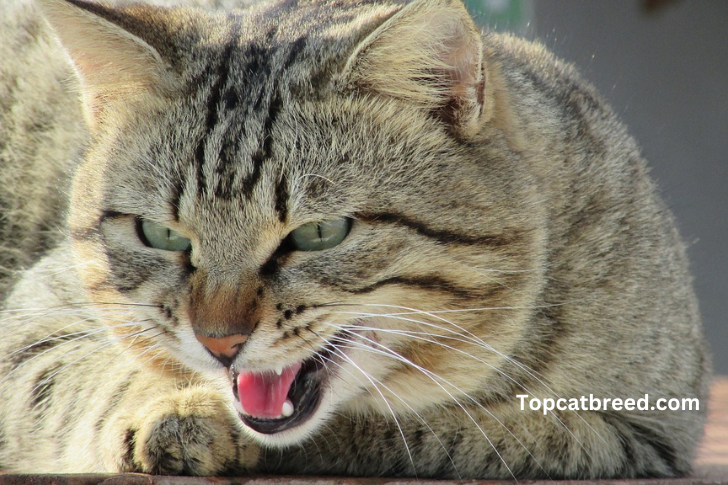
Gaining a comprehensive understanding of growling is essential in deciphering why your cat might growl during sleep.
Definition of Growling
Growling is a distinctive vocalization cat’s use, characterized by a low, guttural sound. It serves as a means for cats to express various emotions, including but not limited to anger, fear, or discomfort.
Common Occurrences of cat Growling
In everyday life, cats may growl during conflicts with other cats, when they feel threatened, or in response to being cornered. This vocalization enables them to convey their emotions and establish boundaries, a natural part of feline communication.
It is Normal for Cats to Growl in Their Sleep?
Exploring the typicality of growling during sleep helps determine whether this behavior is a cause for concern.
Occasional cat Growling
Sporadic growling during sleep is generally considered within the spectrum of normal feline behavior. Much like humans, cats can react to their dreams or external stimuli during slumber. These infrequent vocalizations are typically nothing to be overly concerned about.
Persistent Growling
If your cat consistently growls during sleep, it’s advisable to keep a close eye on their overall behavior and well-being. Persistent growling may be indicative of underlying discomfort or pain. If you observe any unusual or worrisome changes in your cat’s behavior, consulting with a veterinarian is a prudent course of action.
ALSO READ.Why does my cat yowling after eating? 6 reasons
Why Is My Cat Making a Low Growling Sound?
Diving into the specifics of low growling sounds during sleep provides insights into your cat’s unique behaviors.
Dream-Related Growling
Cats, much like humans, engage in dream-related activities during their slumber. These dream scenarios may elicit low growling sounds as their subconscious mind reacts to the content of their dreams. Such vocalizations are a natural part of their sleep cycle.
Distinguishing Snoring from Growling
Occasionally, what may appear as growling is, in fact, snoring. Cats can produce soft snores during deep sleep, and these gentle snores might resemble growling. Recognizing the subtle distinctions between these sounds is crucial for accurately interpreting your cat’s nocturnal behavior.
By exploring these facets of growling and assessing the normalcy of growling during sleep, you can gain a deeper understanding of your cat’s unique behaviors. This knowledge empowers you to respond to your cat’s needs effectively and ensure their well-being.
Why Did My Cat Wake Up Growling?
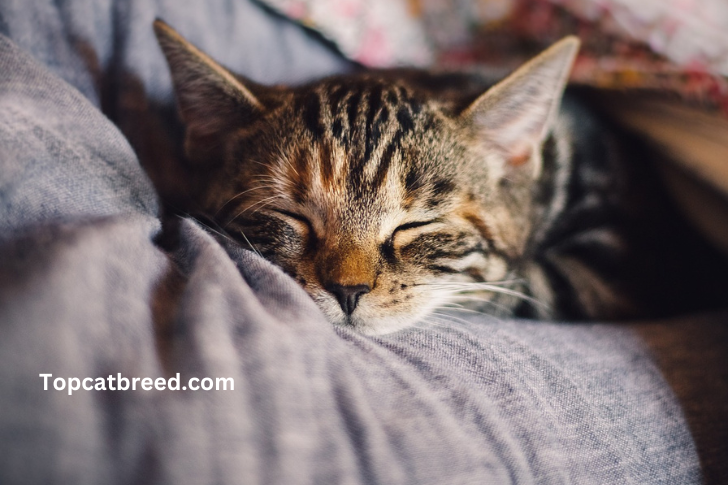
Understanding the potential reasons behind your cat waking up with growling sounds is essential for ensuring their well-being and addressing any underlying issues.
Disturbed Dreams
Just like humans, cats can experience vivid or distressing dreams. When they encounter such dreams, it may lead to waking up in an agitated state, accompanied by growling. While we can’t know the exact content of their dreams, it’s safe to assume that these nocturnal adventures can evoke strong reactions.
Pain or Discomfort
If your cat appears to be in discomfort upon waking and exhibits growling, it could serve as an indicator of underlying pain or physical discomfort. To evaluate this, it’s crucial to observe their behavior and overall well-being closely. If you notice any consistent signs of discomfort, it’s advisable to consult a veterinarian to rule out any medical issues.
What Indicates My Cat Is Feeling Pain?
Recognizing signs of pain in your cat is vital for their overall health and well-being.
Changes in Behavior
If your cat has been growling during sleep and subsequently displays changes in behavior, such as a decreased appetite, reluctance to move, or vocalizations during regular activities, these may signify pain or discomfort. Paying attention to these cues can help you identify potential issues.
Can I Wake Up My Growling Cat?
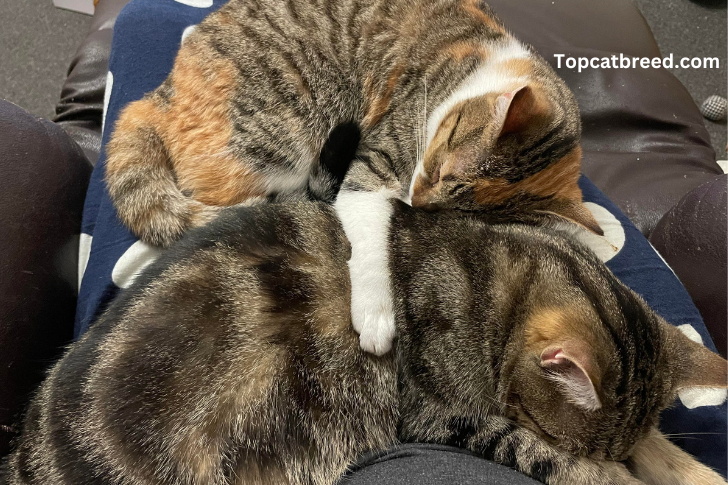
If you suspect your cat’s growling is linked to pain, seeking a veterinarian’s expertise through a thorough physical examination is the wisest step. Veterinarians can discern signs of pain, suggest diagnostic tests if needed, and provide suitable treatment options to address your feline companion’s well-being.
Assess the Situation
Before attempting to wake your cat, take a moment to assess the situation. If the growling results from a vivid dream or momentary disturbance, it’s generally best to allow your cat to wake naturally. Abruptly rousing them might startle them, potentially leading to confusion or stress.
Medical Concerns
Veterinarians can provide guidance on addressing potential medical concerns and offer insights into your cat’s well-being.
By understanding the reasons behind your cat’s growling, recognizing signs of pain, and approaching the wake-up process cautiously, you can ensure your feline companion’s comfort and well-being while fostering a harmonious relationship with them.
FAQS
1: Why do cats growl during sleep?
Cats can growl during sleep due to vivid dreams or subconscious reactions to dream content.
2- Should I be concerned if my cat growls during sleep regularly?
Persistent growling during sleep could indicate underlying discomfort or pain, so it’s advisable to consult with a veterinarian for a thorough evaluation.
3-Why is my cat making noises in sleep?
Cats can vocalize during sleep due to dreams, but it’s usually normal. Observe for changes or consult a vet if concerned.
4-Why is my cat growling like crazy?
Excessive growling could indicate pain or discomfort. Consult a veterinarian to ensure your cat’s well-being.
conclusion
In conclusion, cat growling during sleep can be a perplexing yet fascinating behavior. Understanding the potential reasons, such as dream-related vocalizations, occasional disturbances, or even underlying pain, are essential for cat owners. While occasional growling is usually normal, persistent or unusual changes in behavior warrant attention and consultation with a veterinarian. By observing and comprehending their unique nocturnal sounds, we can better ensure the well-being and comfort of our feline companions during their slumber.

